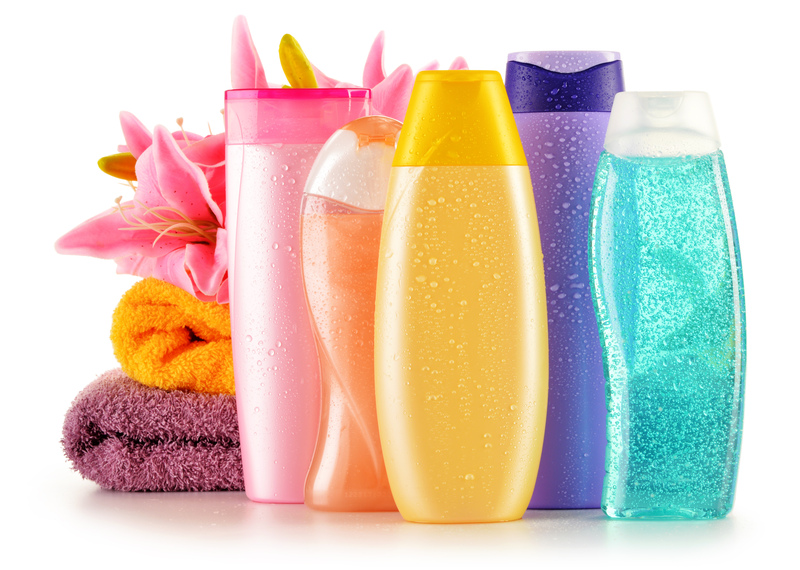Master the Art of Jewellery Cleaning Today
Posted on 01/09/2025
Master the Art of Jewellery Cleaning Today: The Ultimate Guide
Shimmering gemstones, glistening gold, sparkling silver — jewellery adds brilliance to our lives. Yet, daily wear, exposure to cosmetics, sweat, and dust can dull even the most treasured pieces. Fortunately, you don’t need to visit a professional every time your jewellery loses its luster. By learning how to clean jewellery at home, you can revive its elegance and make every piece shine like new again!

Why Regular Jewellery Cleaning is Essential
Before diving into jewellery cleaning techniques, it’s crucial to understand why maintaining your jewellery matters:
- Preserve Appearance: Grime, body oils, and environmental pollutants accumulate on jewellery over time, leading to a dull, lifeless look.
- Prevent Damage: Dirt buildup, especially in settings and hinges, can increase wear and tear.
- Maintain Value: Clean jewellery retains its beauty and value, essential for both sentimental and financial reasons.
- Promote Hygiene: Rings, earrings, and necklaces can harbour bacteria, causing skin irritation or infection if not cleaned regularly.
Master the art of cleaning jewellery and keep your precious pieces radiant for generations!
Getting Started: What to Know Before You Clean Your Jewellery
Identify Your Jewellery Type
Not all jewellery is created equal. Diamond rings, gold necklaces, pearl earrings, and costume jewellery all require different cleaning approaches. Understanding the material and settings will prevent accidental damage.
- Gold: Resistant to tarnish but may scratch easily.
- Silver: Prone to tarnish; needs gentle cleaning and polishing.
- Platinum: Durable but can develop a matte finish over time.
- Gemstones: Soft stones (like opals or pearls) are sensitive to chemicals.
- Costume Jewellery: Often plated; requires gentle, non-abrasive cleaning.
Gather the Right Tools
Equip yourself for a thorough cleaning session:
- Soft-bristled toothbrush or jewellery brush
- Mild dish soap
- Lukewarm water
- Lint-free cloth or microfibre towel
- Non-abrasive polishing cloth
- Bowl for soaking
DIY Jewellery Cleaning Techniques
How to Clean Gold Jewellery at Home
Gold jewellery is a classic, timeless investment that can lose some of its bright sheen with everyday use.
- Prepare a mild cleaning solution: Mix a few drops of gentle dish soap with lukewarm water in a bowl.
- Soak your gold pieces: Allow your jewellery to soak for 10-15 minutes. This loosens dirt and grime.
- Gently scrub: Use a soft-bristled toothbrush to clean intricate patterns and settings.
- Rinse thoroughly: Hold under running water and use a lint-free cloth to pat dry.
- Buff and polish: For an extra shine, use a non-abrasive polishing cloth.
Avoid harsh cleaners like bleach or acetone, which can erode gold.
Restoring Shine to Silver Jewellery
Silver is notorious for tarnishing, but restoring its shine is simple if you follow the right steps:
- Create a silver cleaning bath: Line a bowl with aluminum foil, add hot water, a tablespoon of baking soda, and a pinch of salt.
- Soak your silver pieces: Place jewellery on the foil; let it soak for a few minutes. The chemical reaction removes tarnish naturally.
- Rinse and dry: Rinse with cool water and pat dry with a lint-free towel.
- Polish: Use a specialized silver polishing cloth for extra sparkle.
Tip: Store silver jewellery in anti-tarnish bags and keep away from humidity to prevent future tarnish.
Cleaning Diamond Jewellery for Maximum Sparkle
Diamonds can collect oils and residue, reducing their fire and brilliance. Clean them as follows:
- Mix cleaning solution: Combine warm water with a splash of mild dish soap.
- Soak your diamond jewellery: Leave stones in the solution for 10-20 minutes.
- Gentle brushing: Use a soft-bristled brush to clean around prongs and settings.
- Rinse thoroughly: Use warm water, then dry with a soft, clean cloth.
Warning: Never use harsh chemicals, bleach, or toothpaste on diamonds, as they can scratch metal settings or damage the stone.
How to Clean Pearls and Delicate Gemstones
Pearls, opals, turquoise, and other soft stones demand special care due to their porous nature.
- Wipe after each use: Gently wipe with a soft, damp cloth to remove surface oils.
- Spot clean: Use a diluted solution of mild soap and water; wipe with a cloth (never soak).
- Dry flat: Lay on a towel to air dry before storing.
Never soak pearls or expose them to ultrasonic cleaners, alcohol, or commercial jewellery cleaners.
Cleaning Costume and Fashion Jewellery
Costume jewellery finishes can flake or tarnish rapidly. Here’s how to clean safely:
- Wipe gently with a damp cloth.
- If heavily soiled, use a damp cloth with a dab of mild soap, then rinse and pat dry.
- Avoid soaking and keep away from chemicals, including alcohol-based perfumes.
Tip: Always store costume jewellery infrequently used behind air-tight or zip-lock bags.
Professional Jewellery Cleaning Methods
For heirlooms, antique, or extremely valuable pieces, consider professional cleaning methods:
- Ultrasonic Cleaners: Use high-frequency sound waves to gently remove stubborn dirt. Note: Not safe for pearls or fragile settings.
- Steam Cleaning: Jets of high-pressure steam eliminate debris, safe for diamonds and solid metals, but not for all gems.
- Jeweller’s Polishing: Professionals use buffing wheels and specialized compounds to restore shine.
Consult a jeweller to determine which cleaning method is safest for your piece.
Precautions and Mistakes to Avoid When Cleaning Jewellery
- Avoid soaking porous and glued-in gemstones (like opals, pearls, and turquoise) — they can loosen or discolour.
- Steer clear of toothpicks or metal tools to remove dirt, as these can scratch or damage settings.
- Never mix chemicals (like bleach and ammonia) during cleaning — this can lead to dangerous reactions and ruin metals.
- Dry thoroughly: Ensure each piece is completely dry before storing to prevent tarnish or water spots.
- Check for loose stones: If any prongs or settings seem loose, visit a professional before cleaning.
Jewellery Cleaning Products: What Works and What to Avoid
Effective At-Home Solutions
- Mild dish soap and water: The safest bet for most jewellery.
- Baking soda and aluminum foil: Best for removing tarnish from silver without abrasives.
- Ammonia-based cleaners: Use only on diamonds and never on soft stones.
Products to Avoid
- Bleach, chlorine, acetone: Harsh chemicals that damage metal and stones.
- Toothpaste or abrasive powders: These can scratch metal and gemstone surfaces.
- Household glass cleaners: May contain ammonia or alcohol, safe for diamonds but unsafe for pearls and many gemstones.
Always read product labels and test on a small, inconspicuous area first.
The Best Practices for Jewellery Cleaning and Maintenance
- Schedule regular cleaning: Clean most-worn jewellery at least once a month.
- Remove jewellery during activities: Take off rings, bracelets, and necklaces before showering, exercising, or swimming.
- Polish occasionally: Use a jewellery polishing cloth to maintain shine between deep cleans.
- Store pieces wisely: Use anti-tarnish organisers, soft pouches, or individual boxes to prevent scratches.
- Inspect annually: Have a professional check settings, clasps, and prongs once a year.

FAQs on Jewellery Cleaning
How often should I clean my jewellery?
Everyday pieces can be cleaned monthly, while pieces worn less frequently can be cleaned as needed. Deep cleaning once or twice a year by a professional is beneficial for valuable items.
Can I use vinegar to clean jewellery?
Vinegar can remove tarnish on silver but is not recommended for use on gold, gemstones, pearls, or plated items as it may damage finishes and stones.
Is it safe to use ultrasonic cleaners at home?
Ultrasonic cleaners are effective for solid gold, platinum, and diamonds but can loosen stones or damage soft or glued-in gemstones. Consult your jeweller before using them on vintage or sentimental pieces.
How do I clean jewellery with gemstones securely set?
Brush gently around the setting; avoid soaking semi-precious or fragile stones for long periods. If unsure, consult a professional.
Conclusion: Keep Your Jewellery Sparkling for Years to Come!
Mastering the art of jewellery cleaning is essential for every jewellery lover. With the right knowledge and a little careful effort, you can restore the shine, avoid unnecessary damage, and enjoy your favourite pieces to the fullest. Whether you’re cleaning gold, silver, diamonds, or pearls, the correct method makes all the difference.
Remember these expert tips:
- Identify your jewellery material before cleaning
- Use gentle methods for soft or antique items
- Store properly to prevent tarnish and scratches
- Schedule professional check-ups for precious heirlooms
Take these steps today and let your jewellery tell its story in the most brilliant way. Master the art of cleaning jewellery at home and keep your treasures sparkling!




